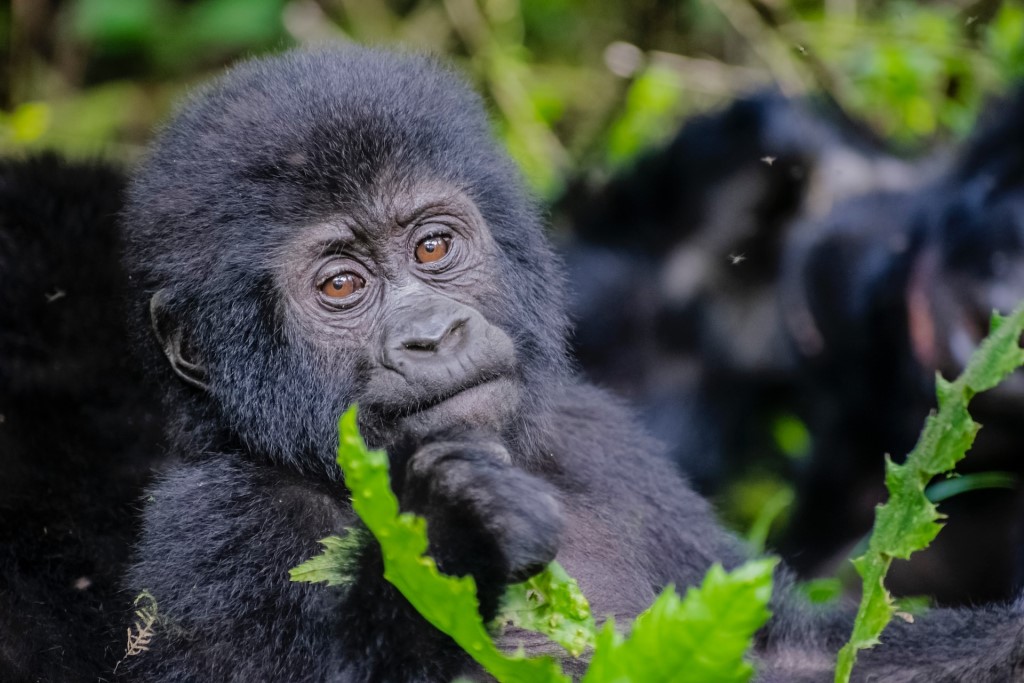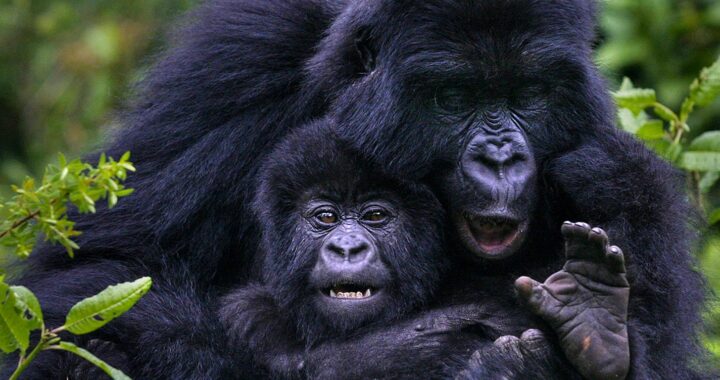How much does it cost to go gorilla trekking?
How much does it cost to go gorilla trekking? The cost to go gorilla trekking can vary depending on several factors such as the country you’re visiting, the specific national park or reserve, the time of year, and the tour operator you choose.

As of May 2024, gorilla trekking permits in Rwanda are priced at $1,500 per person for foreign non-residents, while in Uganda, permits are slightly cheaper, typically around $700 to $800 per person. In the Democratic Republic of Congo (DRC), permits are even more affordable, priced at around $400 to $450 per person. These prices change with time so it is important to contact Gorilla Trekking Safaris Uganda for updated information.
Additionally, keep in mind that these permit costs usually cover the trekking experience itself, including the services of park rangers and guides. However, other expenses such as accommodation, transportation, and tour packages add to the overall cost of your gorilla trekking adventure.
Where is the best place to go gorilla trekking?
The best place to go gorilla trekking often depends on individual preferences, budget, and logistical considerations. However, three countries are renowned for offering exceptional gorilla trekking experiences: Rwanda, Uganda, and the Democratic Republic of Congo (DRC).
- Rwanda: Rwanda is known for its well-organized and relatively accessible gorilla trekking experiences in Volcanoes National Park. The mountain gorillas in this park were made famous by Dian Fossey’s research and the movie “Gorillas in the Mist.” The country is also known for its beautiful scenery and luxury lodges.
- Uganda: Uganda offers gorilla trekking in Bwindi Impenetrable National Park and Mgahinga Gorilla National Park. Bwindi is particularly renowned for its biodiversity and is home to almost half of the world’s remaining mountain gorillas. Uganda’s gorilla permits are often more affordable than Rwanda’s, and the country also boasts diverse wildlife and landscapes beyond gorilla trekking.
- Democratic Republic of Congo (DRC): The DRC is another option for gorilla trekking, offering experiences in Virunga National Park. While the DRC may have faced security challenges in the past, Virunga National Park has made significant strides in ensuring visitor safety. The park is Africa’s oldest national park and offers a unique opportunity to see mountain gorillas in their natural habitat at a relatively lower cost compared to Rwanda and Uganda.
Each of these destinations has its own unique appeal, and the best choice for you will depend on factors such as your budget, travel preferences, and desired experience. It’s essential to research each option thoroughly and consider factors such as permit costs, travel logistics, and safety precautions before making your decision.
How do I book gorilla trekking in Uganda?
Booking gorilla trekking in Uganda typically involves several steps, and it’s advisable to plan well in advance due to the limited availability of permits.
Here’s a general guide on how to book gorilla trekking in Uganda:
- Choose a Tour Operator: Research reputable tour operators that specialize in gorilla trekking in Uganda. Look for companies with good reviews, experience in organizing gorilla treks, and a commitment to responsible tourism practices like Gorilla Trekking Safaris Uganda.
- Select Your Dates: Decide on your preferred dates for gorilla trekking. Keep in mind that permits are limited and often sell out months in advance, especially during the peak tourist season (June to September and December to February).
- Contact the Tour Operator: Reach out to Gorilla Trekking Safaris Uganda to inquire about availability for your preferred dates and obtain a quote for the gorilla trekking package. Provide them with details such as the number of people in your group, any specific requirements or preferences, and whether you’ll need assistance with accommodation and transportation.
- Confirm Your Booking: Once you’ve agreed on the itinerary and price with the Gorilla Trekking Safaris Uganda, you’ll typically need to make a deposit to secure your booking. We will then proceed to obtain the necessary gorilla trekking permits on your behalf.
- Finalize Your Itinerary: Work with us to finalize your itinerary, including details such as accommodation, transportation, and any additional activities you’d like to include in your trip.
- Prepare for Your Trek: As your trekking date approaches, make sure you’re physically prepared for the experience by staying fit and healthy. Ensure you have appropriate clothing and gear for hiking in the forest, including sturdy hiking boots, long pants, rain gear, and a daypack with essentials like water and snacks.
- Enjoy Your Gorilla Trek: On the day of your trek, follow the instructions provided by your tour guide and enjoy the unforgettable experience of encountering mountain gorillas in their natural habitat.
By following these steps and working with Gorilla Trekking Safaris Uganda, you can book a gorilla trekking experience in Uganda with confidence and ease.
What to Carry for your Gorilla Tour
- Camera and charger
- Sunglasses
- Light and heavy clothes
- Hiking boots
- Binoculars (if available)
Package includes the following services:
- Exclusive Safari transport in custom made Safari 4 by 4 wheel drive Land Cruiser with air conditioner.
- Services of English-speaking driver guides.
- Pick-up and drop-off.
- Bottled water
- All Meals included
- All Activities listed in the itinerary
Package cost excludes the following services
- International and Visa entry charges to Uganda.
- All items of personal use i.e. drinks, laundry, telephone calls, gratuities, personal travel insurances, etc.
- Activities not listed in the itinerary
GENERAL INFORMATION ON A GORILLA TOUR
ENTRY REQUIREMENTS:
On your Gorilla Tour , all visitors to Uganda/Rwanda must have a valid passport with at least 4 consecutive blanks pages. Any applicable visa and/or relevant documentation are the responsibility of the traveler. For further information on Visa requirements visitors are advised to contact their nearest Uganda/Rwanda Embassy or Consulate. Apply online here
LANGUAGE:
English
TIME:
GMT +3
VOLTAGE:
220 Volts/AC50Hz. Sockets are UK style, 3 pin square plugs. Power is from the UMEME in the city/major towns and generator with inverter back up in the Safari Lodges and Camps.
CURRENCY:
Foreign currency must be changed at the Bank, Bureau de Change, and Hotel/Safari lodge/Camp/Resort. Major Credit Cards, Master card, Visa, American Express, are usually accepted throughout the country. Where credit cards are accepted, the payment will normally be recorded in US$ regardless of the card’s default currency.
CLOTHING:
Dress is mainly informal and should be comfortable as well as practical. Something warm should be brought along for early morning and evenings. Safari clothes are available from hotels/lodges/camps.
BAGGAGE:
Where possible, travel light. Baggage space on safari is limited to medium suitcase or soft bag per person plus reasonable amount of hand luggage. There is 15 Kilogram per person limit on all flights to the wildlife sanctuaries. Excess luggage must be stored in your arrival hotel.
WATER:
You will find many different of opinion of what is safe and what is not. We recommend for peace of mind, to drink local Bottled Mineral water. It is important to drink plenty of water especially during the hotter months. We would recommend that guests drink at least 2 to 3 liters of water per day to limit the effects of dehydration.
HEALTH;
East Africa is a safe and secure destination; however, it is a good idea to take a few precautions. Kindly consult your GP or local doctor at least 6 weeks before you travel, with regards:
Malaria prophylactics. East Africa is a known malaria area and preventive measures are essential. You are advised to take one of the recommended anti-malarial drugs. Be sure to wear long sleeved shorts and trousers after sunset and spray the exposed parts of your body with a mosquito repellent spray
Remember to protect yourself from direct sun rays with sunscreen cream or safari hat.
DIETARY REQUIREMENTS:
For those guests with specific dietary requirement, please ensure we are notified prior to travel
GRATUITIES:
As a guideline and dependent on how happy you are, we would suggest the following:
The General Hotel/Lodge/Camp Staff – Approximately U$ 10.00 per person per day
Driver Guides – Approximately US$ 15.00 to US$ 20.00 per person per day
PHOTOGRAPHY:
Please be careful when photographing public buildings, airports, bridges, the national flag and people in uniform. Ensure that you have sought permission before photographing local people and their villages. If in doubt, please check with your guide.

